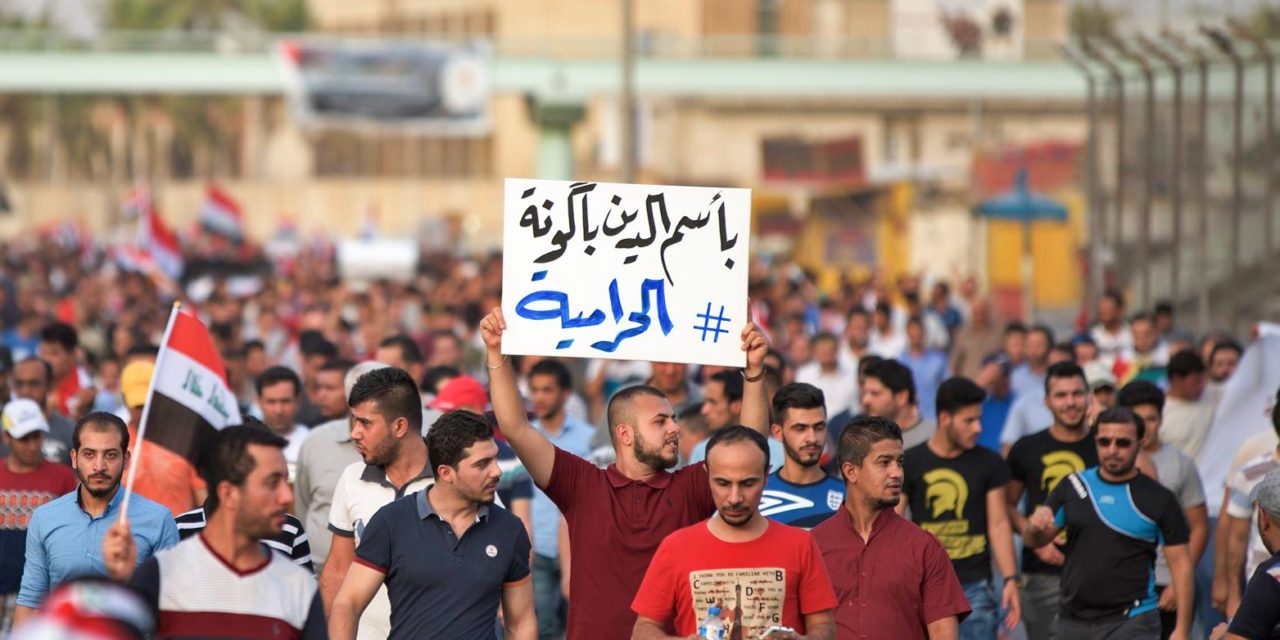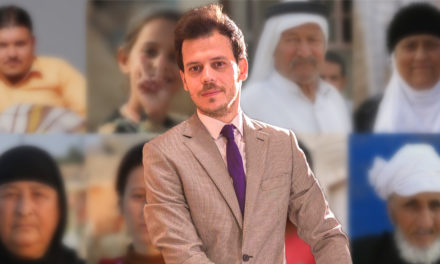Among the most common assertions made by Iraq observers is that Iraqis are fed up with Islamist parties and favor what is commonly described as a ‘civil state’. Young people in particular are thought to be disenchanted with the political system and want to see a greater separation between religion and politics. But a closer inspection of this claim reveals an overly simplistic and often erroneous framing of a struggle between Islamists and civil state advocates that assumes two divergent and irreconcilable visions for the country.
The very definition of ‘civil state’ [al-dawla al-madaniyya] in Iraq is contentious since it is sometimes thought of as synonymous with a secular state [al-dawla al-‘ilmaniyya], while others have sought to distance it from secularism. This tension suggests that the term is used by different people to denote a form of moderation that offers an alternative to the dysfunctional and destructive status quo politics. But even if we define the term ‘civil’ in its broadest sense to mean ‘non-Islamist’, it still remains problematic since many Islamists also advocate for a civil state. There appears to be a false dichotomy that needs to be scrutinized in greater detail.
Firstly, the notion that Islamist and non-Islamist approaches to politics in Iraq are fundamentally distinct is questionable. It would be very difficult to pinpoint a political party in Iraq that is truly Islamist in the traditional sense of the word. None of the Islamist parties openly call for an alternative to the existing democratic system outlined in the constitution. Even parties that are more closely aligned to Iran do not advocate for wilayat al-faqih in Iraq. Of course, Islamism is a spectrum, so advocating for democracy does not necessarily diminish their core identity as Islamists, but when contrasted with secularism, those differences appear to be marginal on several fronts.
Beyond the rhetoric, it is difficult to point to instances where Islamist parties have sought to incorporate a greater role for shariah within Iraq’s legal system. The only obvious example in recent years has been the Jafari law, which was cynically used by the Fadhilla Party to appeal to its base but created such a backlash that it received almost no support from the other Islamist parties.
This is not to argue that religion is not central to the identity of Islamist parties. Within the social sphere, Islamists certainly believe that Islam should be pivotal to society’s moral and ethical underpinnings. Outward displays of religiosity are apparent among members of Islamist parties, but this is unremarkable in a society where religion still retains an important social function. The point is, advocating for the role of religion in society does not necessarily conflict with the ideals of many non-Islamist ‘civil state’ proponents.
Furthermore, within the realm of politics, the interchange between secular and Islamist politicians is not uncommon. The most obvious example is the alliance between Moqtada Al-Sadr and the Iraqi Communist Party, as well as other secular activists. These ostensibly disparate groups will campaign on a united front under a common electoral platform over the next six weeks. Furthermore, several Islamist leaders draw popular support from non-Islamist echelons of society, including Haider Al-Abadi, who hails from the Islamic Dawa Party, and Ammar Al-Hakim, whose insistence on wearing religious attire is not coincidental. Even Grand Ayatollah Sistani retains soft power that extends way beyond his faithful followers.
The other question that needs to be addressed is whether the presence of less Islamists would improve governance in Iraq. While it is true that Islamists have been at the forefront of Iraqi politics since 2003, the notion that Iraq has been ruled by them is contested. A look back at the composition of previous governments shows that self-described secular parties and individuals have always held key ministerial posts since the first elected government in 2005.
A greater role for secular parties does not necessarily equate to less corruption or improved governance. Nor would it end the cycle of sectarian quotas, since this system has little to do with religion per se, and more to do with an arrangement that maintains patronage and influence within the state.
The perception that Islamism as a political approach has failed at governance is largely predicated on the notion that Islamists held the moral high ground, and were expected to conduct themselves with a higher degree of integrity and altruism. This is fundamentally where the Islamists failed. They obsessed with self-enrichment instead of self-sacrifice, which has led to a public backlash against them that will be difficult to reverse. But there is little evidence to suggest that non-Islamists are any less corrupt and inept when presented with similar opportunities.
As for sectarianism, while Islamist parties have clearly used identity politics to strengthen their bases of support, secular sectarians also exist and have been equally guilty of stoking sectarianism for political gain. Sunni supremacist politics is a case in point. Often perpetrated by staunch secularists with Baathist inclinations, this brand of sectarianism is rooted in crude tribalism rather than religious ideology.
It is tempting to frame Iraq’s predicament as a traditional struggle between Islamists and their adversaries, but if Iraqis want to reform their system, they need to look beyond simplistic caricatures and address the underlying pathologies that often transcend the role of religion in politics.

Ali Hadi Al-Musawi
Ali Hadi Al-Musawi is an Iraqi analyst and contributing writer at 1001 Iraqi Thoughts.










